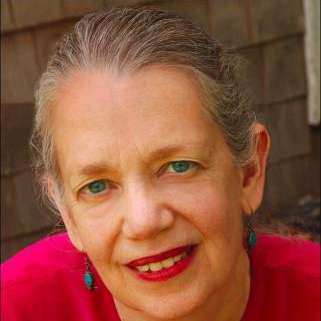Wit is the ruling spirit of British Youth Opera’s delectable production of Benjamin Britten and W.H. Auden’s operetta Paul Bunyan, directed by Will Kerley. The first chorus, sung by a grove of Old Trees, dressed in long-johns and nighties and wielding stiff-bristled, wooden-handled push brooms, takes place on a floor across which is painted a huge, ringed circle like the stump of a mighty but felled redwood. “We remain and grow; / We like life to be slow”, sing the Old Trees. “No no no!” sing four Young Trees, similarly garbed in cotton nightwear but sporting green twiggy branches on top of their heads.
The ambitions of the Young Trees are to become a sailing ship, the roof of a house, a square and a chair. Into the forest zip three Wild Geese, dressed as aviators with goggles and trailing scarves. They’ve got news: under the next blue moon, a new creature will be born: a Man. And his name is Paul Bunyan.
Britten and Auden wrote Paul Bunyan during their sojourn in the United States in the late 1930s. Originally written to be sung by high-school students, the operetta premièred, to unfavorable reviews, at Columbia University in 1941. It was rewritten in 1974–75 after a revival at Aldeburgh. It’s a curious and ambivalent look at America by two young English artists (Britten was 28, Auden 34) uncomfortably far from home. Their Bunyan is a far cry from the comic folk-hero lumberjack whose legend grew up around the North American campfires of rough-and-tumble loggers. He is capitalistic, cagey, animistic and mythic. The men he seeks to tame this new and savage land are: “Disturbers of public order, men / without foresight or fear ... Energetic madmen”. Will Edelsten, in an entrepreneurial pinstriped suit, performs wonderfully as the Voice of Bunyan, seated to the right and high above the stage; Paul himself is too big a character to be strutted on a confining stage.
The roles are legion: from trees to loggers, from cats and dog to cooks and young lovers, from cowboy narrator to a frustrated artist/bookkeeper. Because it provides a variety of roles and singing styles, the opera is suitable material for the BYO’s mission to train and cultivate a passel of young singers at the beginning of their careers. Paul Bunyan and a second opera, Domenico Cimarosa’s The Secret Marriage, are the ending achievements of the organization’s summer programme, which takes place over seven weeks, starting in July. The young singers, who are the pick of auditions held in five locations across the country, train in the many operatic skills – vocal and music coaching, movement and dialect study – while rehearsing for these culminating performances.
Although the choruses and semi-choruses energetically dominate the opera, there were many lovely moments achieved by the soloists. Among them were a comic but sonically luscious duet by the bad cooks Sam “Soup” Sharkey (tenor Alex Aldren) and Ben “Beans” Benny (bass Oskar Palmblad); the haunting and deeply melodic song on the death of her mother sung by Bunyan’s daughter, Tiny (soprano Louise Kemeny); the complex and sophisticated aria by Johnny Inkslinger (tenor Samuel Smith) as he ponders the dilemma of sacrificing his art to the need to eat; and the rumbling nightmare sung by Hel Helson (bass Timothy Connor) as he struggles with his ambitions. A tongue-in-cheek look at American folk music is found in the country-western permutations of the Narrator (Christopher Jacklin) who, accompanied by guitar, unwinds the lumberjack’s tale. The audience appearances of the Western Union Boy (large-voiced Dominic Felix), though brief, were delightful.
The full chorus was especially clear in its diction, but the other choruses less evenly so. The Wild Geese and Fido and the Cats were especially difficult to understand, though their absolute charm and sweet sound made their unintelligible lyrics completely forgiveable. Auden’s libretto might have been better served with supertitles. There are a lot of words for audience and singers to wade through. The composer’s decision to have much of the libretto spoken rather than sung was an astute one.
Britten’s music, finally, is outstanding in its fluidity and ease as it shifts through a complex range of Old and New World styles, while moving from song to spoken word; its ability to negotiate these changes seamlessly adds to the operetta’s thematic vivacity – its projection of a newly discovered wilderness teeming with natural bounty and unhampered freedom.
Peter Robinson thoughtfully conducted the excellent Southbank Sinfonia, the eleven-year-old orchestra of young musicians based at St John’s Waterloo. These musicians enhanced what was the production’s best feature – its young performers, who delivered every note with vibrancy and eager freshness.




